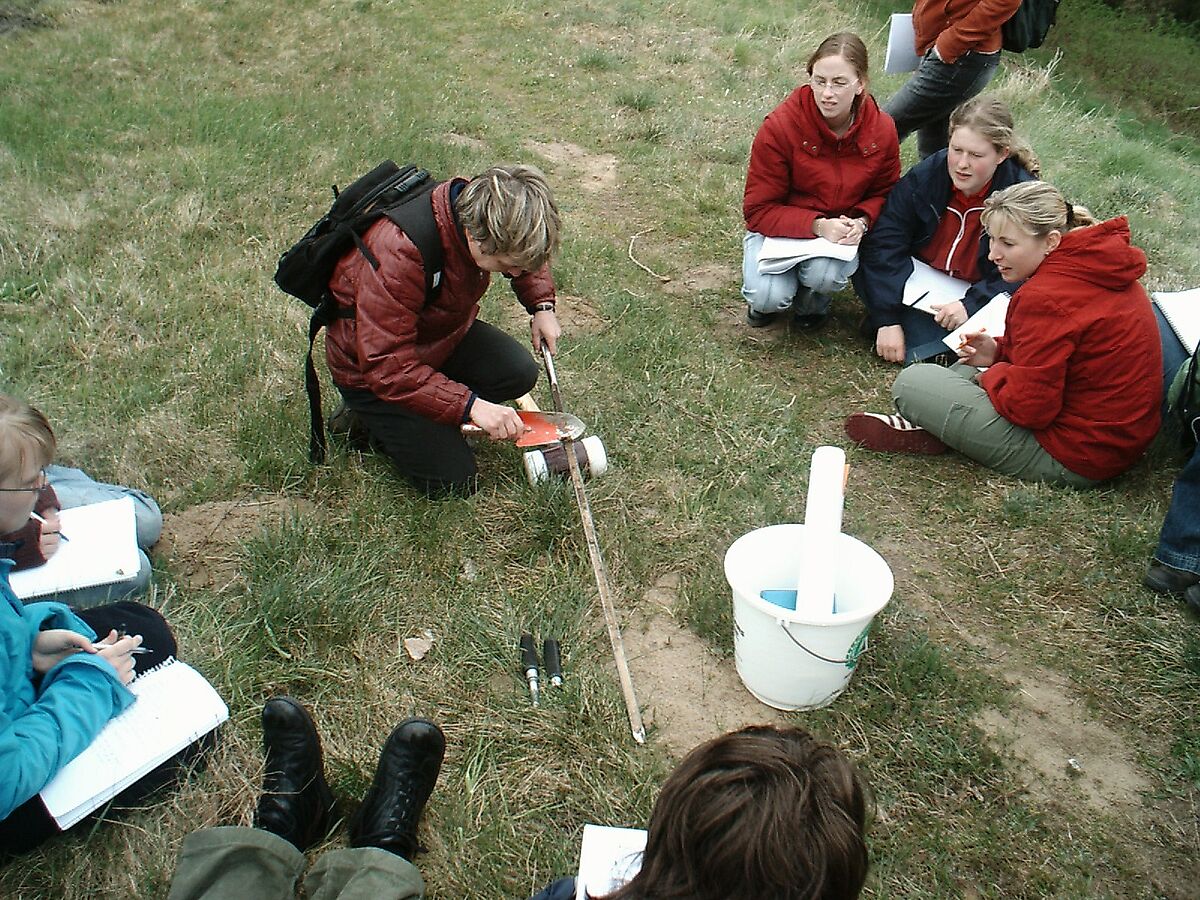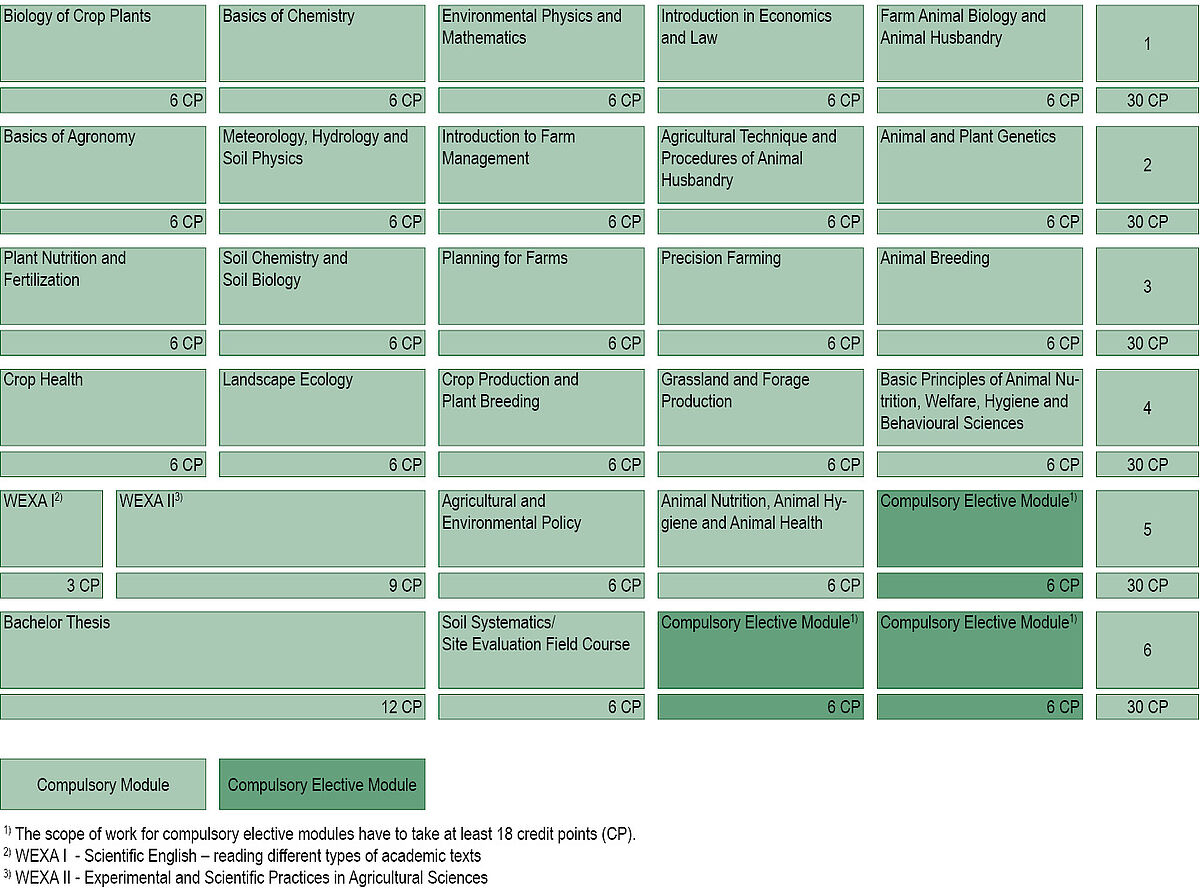Course of Study
During the 1st semester, our students get to know the fundamentals of classic scientific and economic disciplines. Later, the focus is on the principles of agricultural sciences, followed by more specific agricultural issues during the 3rd and 5th semester. The last year is characterised by a qualification in scientific working methods and the opportunity to establish your individual study-profile.
Studying implies also: rework and rethink the lectures and prepare for the up-coming lectures. The dimension for the workload of a certain module is the credit point (CP) according to the "European Credit Transfer System". Thereby, the time for visiting lectures and the preparation for courses and practises is summed up. Each CP equals 30 hours of work during the semester.
Teaching and learning forms

The study-specific examination and study regulations of the Bachelor's degree programme in Agricultural Sciences determine which modules have to be completed in which semester (see study programme schedule). In addition, students receive a timetable for each semester in which the courses of all modules of the respective semester are scheduled.
The contents of the course are taught in different courses. The types of courses are characterised by the use of different forms of teaching and learning.
The following types of courses are used in the Bachelor's programme in Agricultural Sciences:
Examinations

Normally, modules are completed with an examination at the end of the semester. Those tests are most commonly oral or written exams, but also assignments and presentations are possible. The examination can be an individual or a group examination. Examinations can also be taken lecture accompanying.
According to the study and examination regulations of the programme, it is possible that certain exercises and tasks need to be fulfilled as entrance requirements for the examinations. These entrance requirements can be valued and graded but do not have an influence on the mark of the module. Entrance requirements can for example be in the form of presentations, reports or preliminary exams.
At the Faculty of Agricultural and Environmental Sciences the examination period of one semester is separated in two examination phases. The first examination phase takes place in the first two weeks after the end of lectures. The second examination phase takes place during the two weeks before the start of the new term.


